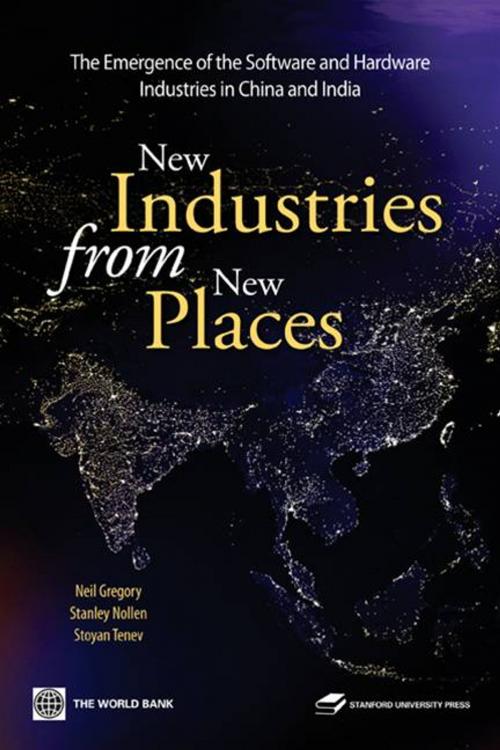New Industries From New Places: The Emergence Of The Hardware And Software Industries In China And India
Business & Finance, Industries & Professions, Industries| Author: | Gregory Neil; Stanley D. Nollen; Tenev Stoyan | ISBN: | 9780821364789 |
| Publisher: | World Bank | Publication: | March 26, 2009 |
| Imprint: | Language: | English |
| Author: | Gregory Neil; Stanley D. Nollen; Tenev Stoyan |
| ISBN: | 9780821364789 |
| Publisher: | World Bank |
| Publication: | March 26, 2009 |
| Imprint: | |
| Language: | English |
Software comes from India, hardware comes from China. Why is that? Why did China and India take such different paths to global dominance in new high-tech industries? Will their paths continue to diverge or converge? How can other countries learn from their successes and failures in reaching global scale in new industries? To answer these questions, this book presents the first rigorous comparison of the growth of the IT industries in China and India, based on interviews with over 300 companies. It explains the different growth paths of the software and hardware sectors in each country, providing insights into the factors behind the emergence of China and India as global economic powers. It provides a compelling case study of how differences in economic policies and the investment climate affect industrial growth. This book sheds new light on common debates on "China versus India", on why India is the software capital of the world while China is a manufacturing powerhouse. It refutes common myths about the growth of these industries for example, the role of Non-Resident Indians or the Y2K problem in the growth of the Indian software industry, the role of government intervention in industrial growth, and the relative size of China and India's software industries.
Software comes from India, hardware comes from China. Why is that? Why did China and India take such different paths to global dominance in new high-tech industries? Will their paths continue to diverge or converge? How can other countries learn from their successes and failures in reaching global scale in new industries? To answer these questions, this book presents the first rigorous comparison of the growth of the IT industries in China and India, based on interviews with over 300 companies. It explains the different growth paths of the software and hardware sectors in each country, providing insights into the factors behind the emergence of China and India as global economic powers. It provides a compelling case study of how differences in economic policies and the investment climate affect industrial growth. This book sheds new light on common debates on "China versus India", on why India is the software capital of the world while China is a manufacturing powerhouse. It refutes common myths about the growth of these industries for example, the role of Non-Resident Indians or the Y2K problem in the growth of the Indian software industry, the role of government intervention in industrial growth, and the relative size of China and India's software industries.















